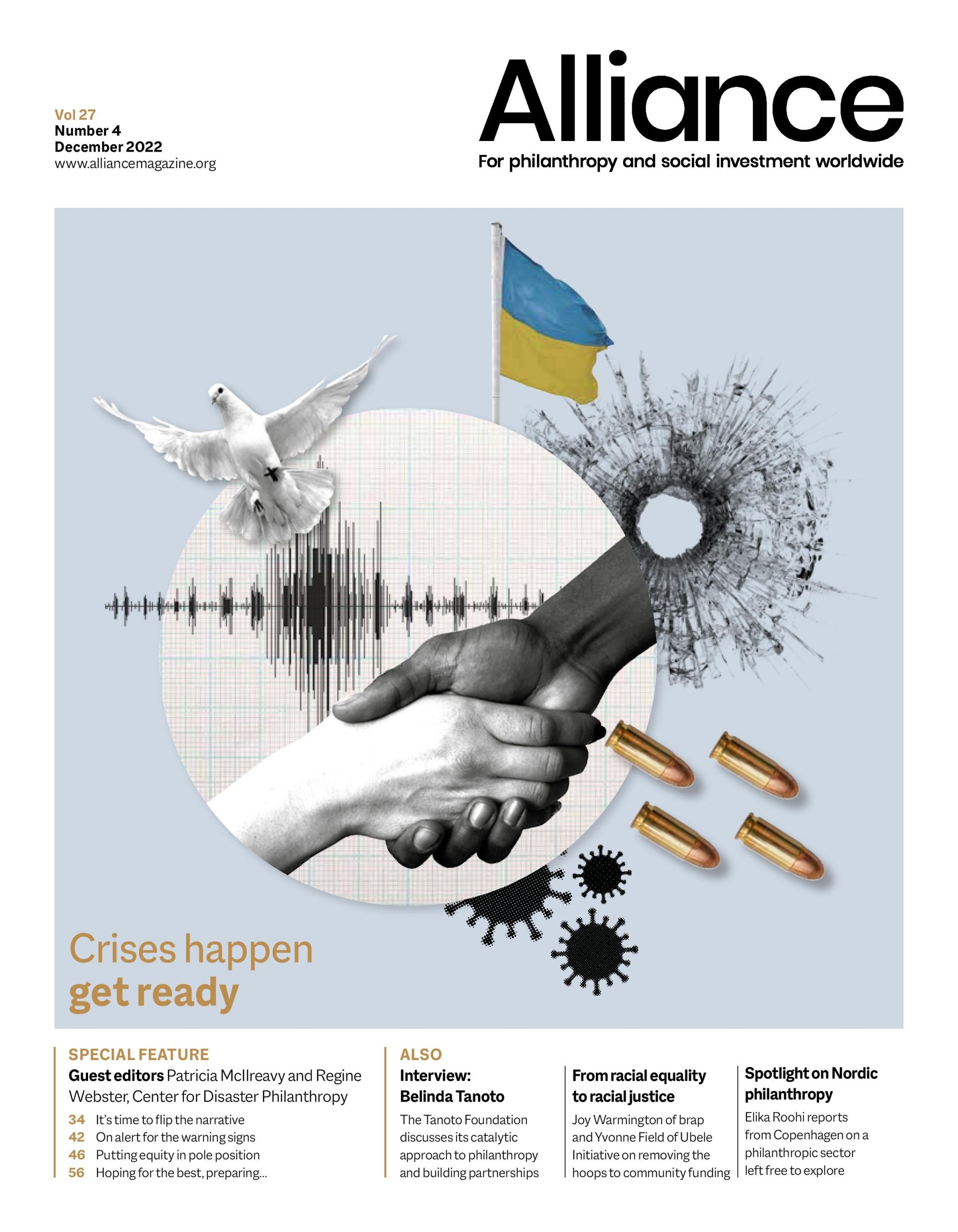It’s a sign of the times that there is no shortage of articles on philanthropy’s response to crisis. Natural disasters, wars, conflict, famine, and poverty – often exacerbated by climate change – are all featured in our latest special feature guest edited by colleagues at the Center for Disaster Philanthropy.
But why do some crises receive more attention and funding than others? Does philanthropy have a particular responsibility in ensuring funding goes to the right place, at the right time and in the right way? If so, how well is it discharging that responsibility?
Among many crises this year, from conflict-induced suffering in Yemen and Syria to devastating floods in Pakistan, it’s been the war in Ukraine which has loomed largest in the West. Russia’s invasion has killed innocent people, destabilised an entire region and risked nuclear fall-out. Ukrainian civil society and philanthropy have been impressive in response – the Zagoriy Foundation’s shift on to a wartime footing is one standout example. International philanthropy has also provided much-needed solidarity, philanthropic support and refugee resettlement.
It remains a depressing fact that philanthropy’s contribution to ‘peace building’ is negligible – so much so that the term itself seems almost quaint and anachronistic in a world ridden by war and conflict.
But could philanthropy have done more sooner to foster community-level peacebuilding and avoid conflict in the first place? While the conflict is a first-order failure of politics and international institutions, it remains a depressing fact that philanthropy’s contribution to ‘peace building’ is negligible – so much so that the term itself seems almost quaint and anachronistic in a world ridden by war and conflict. And it’s not just in Ukraine. Progressive philanthropy has also been missing in action as crisis deepens in Israel and Palestine – one which could erupt into devastating violence in 2023.
There are increasing calls within philanthropy circles to fund efforts centred on building resilience. But while resilience to crises of our own making is necessary it is not sufficient. Philanthropy needs to focus on building more stable and equitable systems. Otherwise, fostering resilience may ameliorate the status quo but do little to shift it.
‘Rather than resilient, should not our desire be for people to be self-empowered and have dignity and choice over their future?’ That’s the question posed by our guest editor Patricia McIlreavy.
Elsewhere, the pressure on philanthropy to respond further, faster, and better is likely to mount in the years ahead. Some foundations are increasing (and improving) their giving but it remains to be seen whether these responses will temper growing expectations. There are charges in the US, for example, that laws around giving put the interests of donors first, rather than prioritising what charities need. But proposed legislative reforms to increase payout rates are resisted by foundations, community foundations and Donor Advised Funds on the grounds that moves to curtail donor freedom will dampen rather than accelerate giving.
Philanthropy needs to focus on building more stable and equitable systems. Otherwise, fostering resilience may ameliorate the status quo but do little to shift it.
Another huge and arguably more existential challenge is the growth in wealth concentration. Philanthropists should respond by distributing their wealth in greater proportions through acts of voluntary philanthropy and through embracing progressive taxation – including a wealth tax.
That would be a radical statement that elite philanthropy is part of a social contract rather than standing apart from it while distributing cash from behind ever higher walls. Rather than leaving a new generation to pick up the tab, philanthropists should embrace the increasingly progressive values, norms and standards of our field and challenge any ultra-wealthy peers who fail to embrace them.
The magnitude and multiplicity of our crises mean the times demand more accountability and far bolder action than currently on offer from mainline philanthropy.
Charles Keidan is Executive Editor at Alliance magazine.







Comments (0)